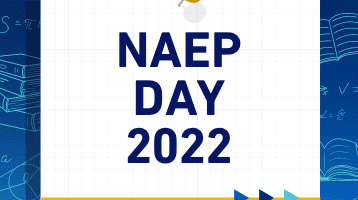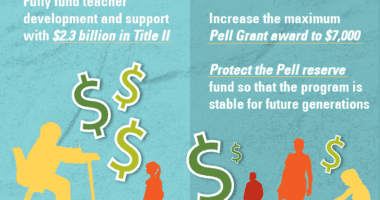Voices of Reason Taking Hold in Common Core Debate
Education leaders and policymakers should take note of states like Louisiana and Massachusetts that plan to slow down the implementation of assessments aligned to the Common Core State Standards. While both states will proceed with the new, high standards, they will take more time — up to 10 years, in Louisiana’s case — to prepare teachers, administrators, students, and families for the rigors of the new assessment system. Implicit in these decisions is the understanding that any powerful initiative can meet an untimely death in the wheels of misguided and uninformed implementation.
The goal of the Common Core — to prepare students for a globally competitive workforce — still has broad bases of support among educators, business leaders, and community organizations. These groups know the data all too well: Progress has stalled in reading and math as measured by National Assessment of Educational Progress (NAEP), particularly among low-income students and students of color. And our performance on internationally benchmarked assessments is mediocre: We have not progressed at the same rate as our industrialized peers.
But you don’t need to be an academic to understand the importance of high-level standards. Many parents I meet in everyday visits to supermarkets, school performances, or playgrounds want their children to be better prepared to understand complex mathematical equations or to thoughtfully analyze rigorous readings.
It’s not the standards themselves that are threatening to erode support, but the lack of attention devoted to thoughtful implementation and communication.
Policymakers should not raise expectations for student and teacher performance without deeper consideration of the shifts teachers will need to make in their practice and administrators in their support. They also cannot ignore the targeted supports necessary for English-language learners, students with disabilities, and students struggling academically. The convergence of more rigorous standards, new teacher evaluation systems, and unreasonably compressed timelines undercuts the work practitioners and communities need to do to actually enact the change we all want the Common Core to make.
Educators need time to consider meaningful curriculum changes, shifts in pedagogy, and the changes that come from everyday collaboration with colleagues. Community leaders and parents need time to learn and understand the differences between the Common Core and current standards. These groups must be able to ask and hear informed responses to important questions about the impact of the standards on their schools and children. This is time well spent and only reinforces the credibility of the shift and the need to measure the impact of our efforts on all students’ academic progress.
Indeed, the Common Core won’t single-handedly yield high levels of achievement for all of our nation’s children, but it does provide an important road map to what students need to know to be successful after high school. States should take the time to more carefully think through how schools and communities experience these efforts, as leaders in Louisiana and Massachusetts are doing. In turn, they may actually garner more long-term support and buy-in from the people that matter most — students, families, and educators.












